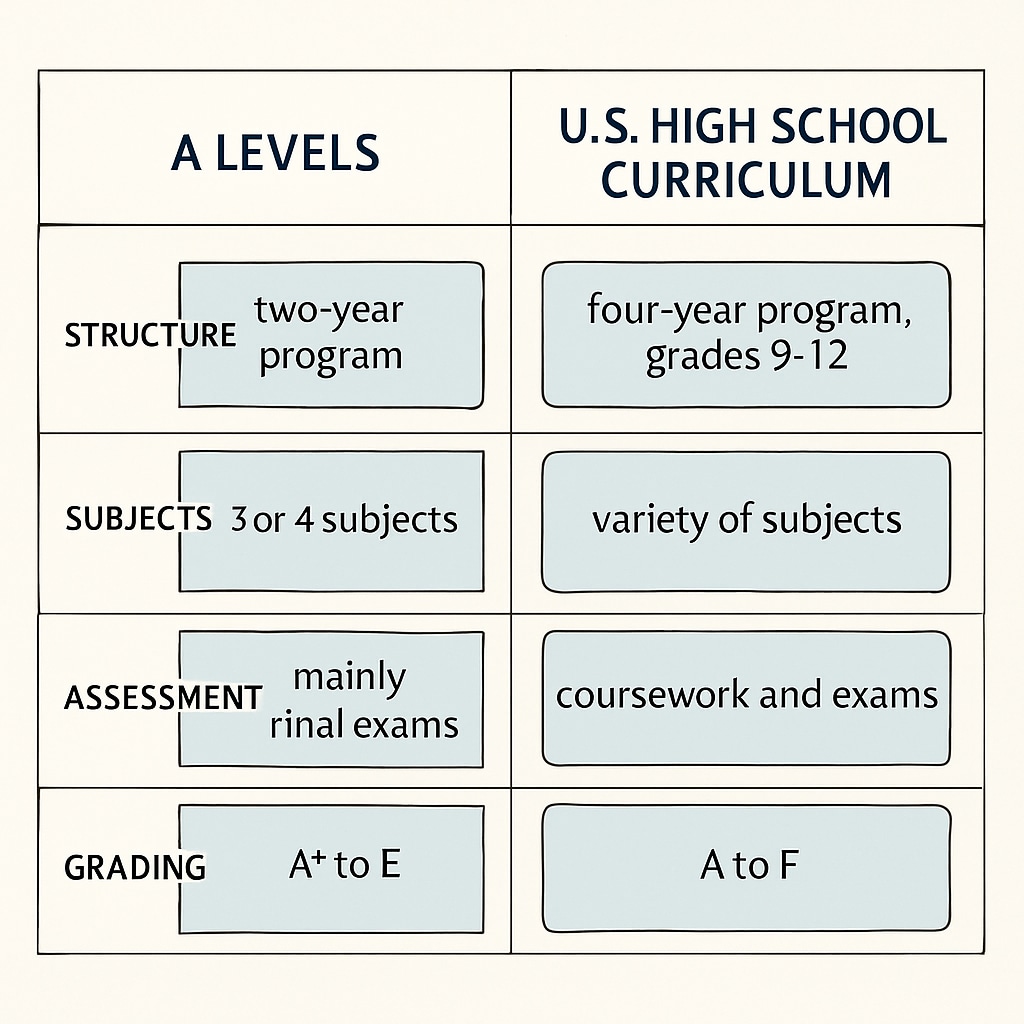A Levels, the culmination of the British high school curriculum, play a significant role in U.S. university admissions. Recognized for their academic rigor, they offer students a competitive edge when applying to universities across the United States. However, navigating the admissions process requires a thorough understanding of how A Levels are evaluated, as well as strategic planning to showcase their full potential. This article examines the value of A Levels in U.S. university admissions, outlines their advantages and limitations, and provides actionable strategies for students aiming to study in the U.S.
Why A Levels Are Recognized by U.S. Universities
U.S. universities value A Levels for their depth of study and academic rigor. Unlike many high school curricula, A Levels allow students to specialize in subjects that align with their academic interests and career goals. This focused approach is appreciated by admissions officers, as it demonstrates a student’s commitment and expertise in their chosen fields.
In addition, many universities equate A Levels with Advanced Placement (AP) courses, a benchmark for academic excellence in the U.S. education system. For example, achieving high grades in A Levels can often translate to college credits, allowing students to skip introductory courses and accelerate their academic journey.

The Advantages of A Levels in U.S. College Applications
A Levels offer several unique benefits for international students applying to American universities:
- Global Recognition: A Levels are accepted by most U.S. colleges and universities, including Ivy League institutions and top-tier public schools.
- Academic Depth: A Levels demonstrate a student’s ability to engage in advanced, specialized coursework, which is highly valued by admissions committees.
- Potential for College Credit: High scores in certain A Level subjects may translate to college credits, saving both time and tuition.
- Flexibility: The ability to choose specific subjects allows students to tailor their studies to align with their intended major or career path.
For example, a student aspiring to study engineering can focus on Mathematics, Physics, and Chemistry, showcasing their preparation for a technical degree.
Challenges of Using A Levels in U.S. Applications
While A Levels are highly regarded, there are some challenges that students should be aware of:
- Grading Standards: The grading scale for A Levels (A* to E) is different from the GPA system used in the U.S., which may require additional explanation in applications.
- Subject Limitations: Specializing in only three or four subjects can be seen as narrowing academic exposure, compared to the broader U.S. high school curriculum.
- Standardized Testing: Many U.S. universities still require SAT or ACT scores, in addition to A Levels, for a holistic evaluation.
For students coming from the British system, it’s essential to address these challenges proactively in their applications.

Strategies for Maximizing A Levels in U.S. Applications
To make the most of your A Levels, consider the following strategies:
- Provide Context: Use the application’s additional information section to explain the A Level grading system and how it compares to U.S. standards.
- Highlight Academic Rigor: Emphasize the depth and challenge of your A Level subjects in your personal statement or essays.
- Combine with Strong Test Scores: Pair your A Levels with competitive SAT or ACT scores to strengthen your application.
- Secure Strong Recommendations: Ask your teachers to highlight your performance in A Levels, particularly in subjects related to your intended major.
- Research Credit Policies: Investigate whether your target universities offer college credits for A Level results, and include this information in your application.
The Bottom Line: A Levels as a Gateway to U.S. Universities
A Levels are a powerful asset for international students aiming to study in the U.S. Their academic rigor, global recognition, and potential for earning college credits make them a valuable credential. However, success in the application process requires careful planning and a strategic approach to highlight your achievements. By understanding the expectations of U.S. colleges and presenting your A Levels effectively, you can position yourself as a strong candidate for admission.
In conclusion: A Levels open doors to a world of opportunities in U.S. higher education. With the right preparation and strategy, they can help you achieve your dream of studying at a top American university.


